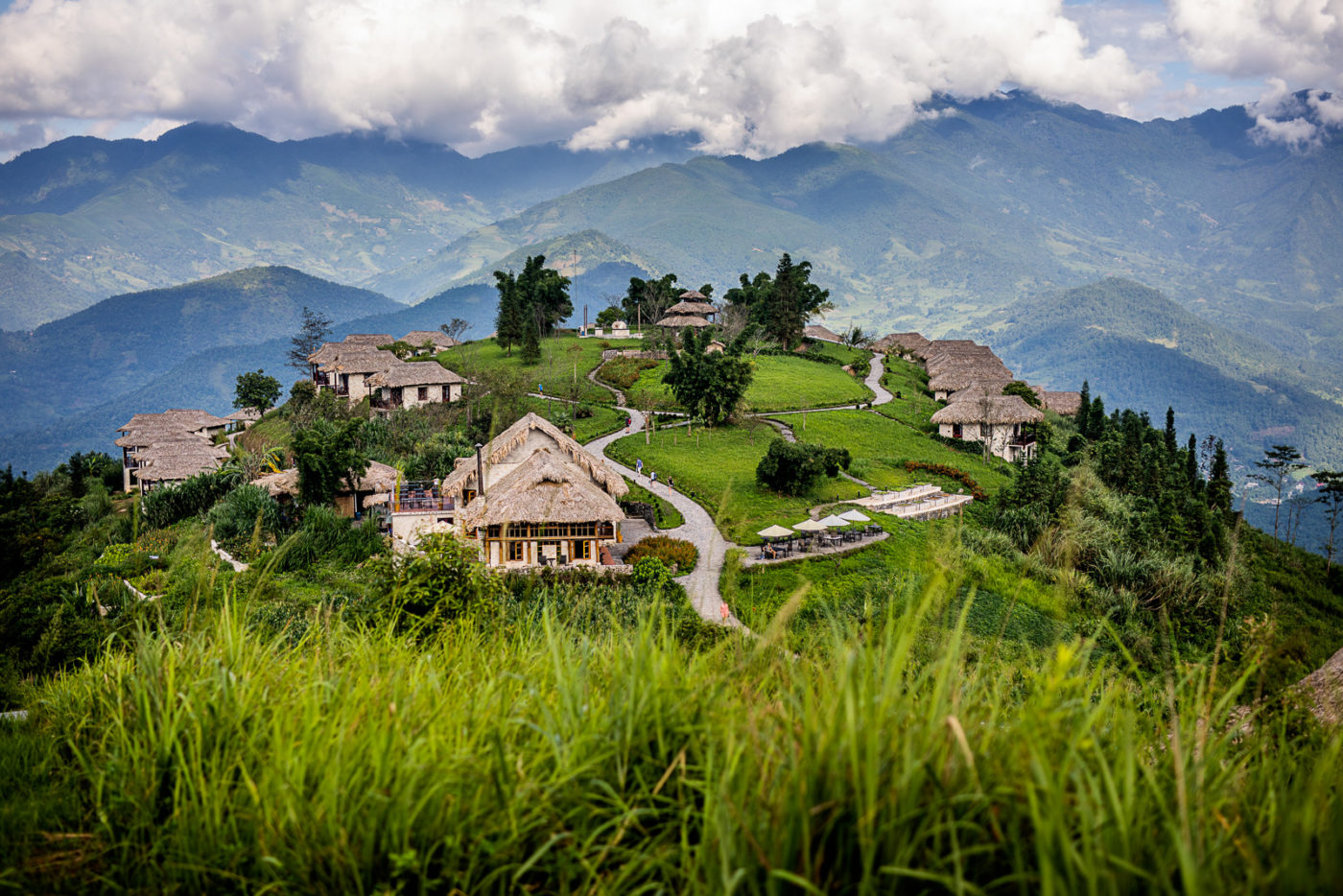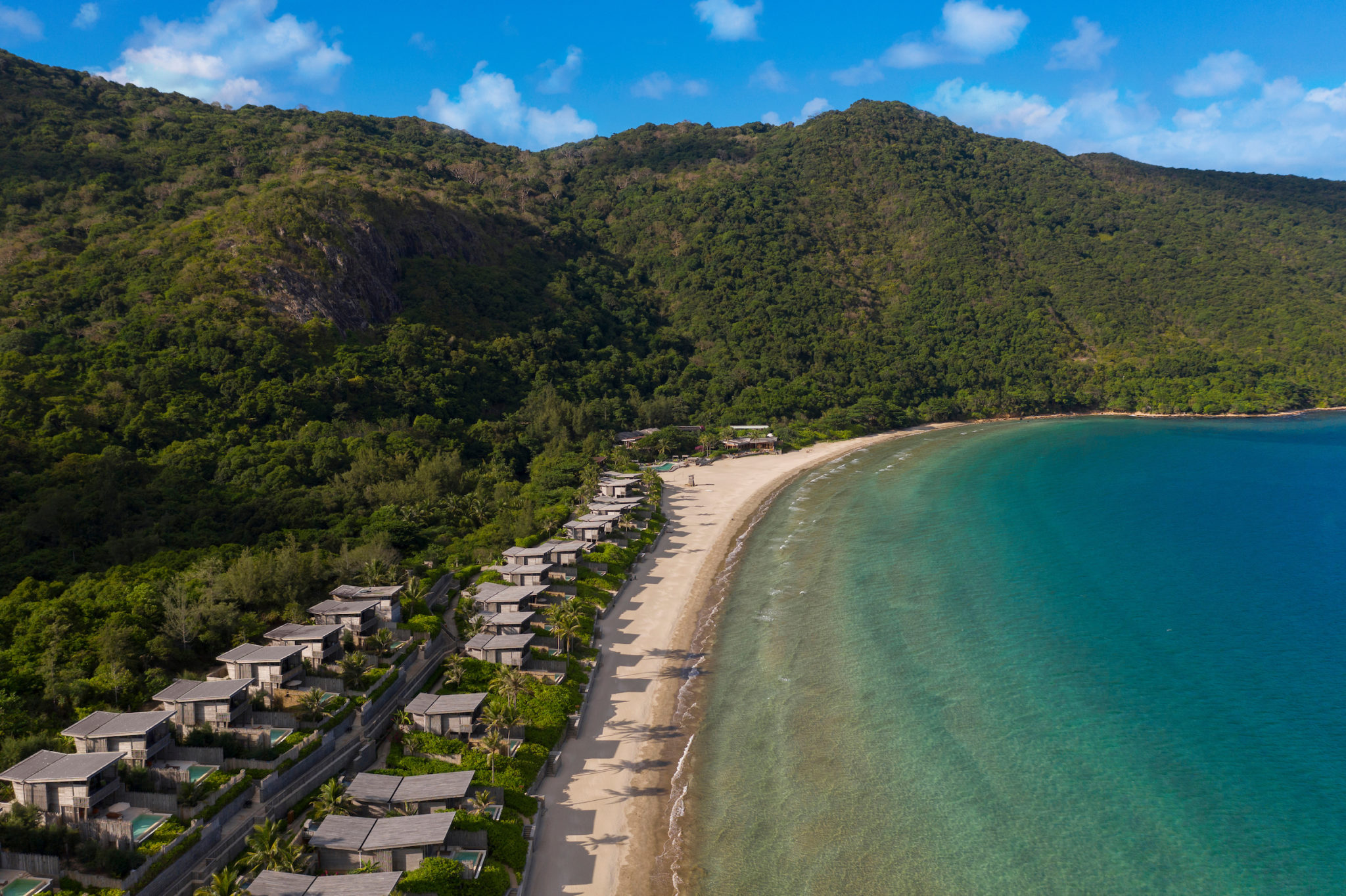Sustainable travel is becoming more popular in 2023. They not only help to preserve the planet for future generations, but they also provide travelers with one-of-a-kind, authentic experiences. In this blog post, we'll go over sustainable tourism in
TABLE OF CONTENTS
1
1. Vietnam Travel Trend 2023 – Sustainable tourism
2
2. Quang Nam, Vietnam, has been named one of Asia's four leading sustainable destinations
3
3. The best sustainable lodging in Vietnam
4
3.1. Topas Ecolodge – Sa Pa
5
3.2. Heritage Cruises Cat Ba Archipelago – Hai Phong
6
3.3. Banyan Tree Lang Co Resort – Hue
7
3.4. Four Seasons Resort the Nam Hai – Hoi An
8
3.5. Six Senses Con Dao Resort – Con Dao, Vung Tau
9
3.6. Komorebi An Son Homestay – Da Lat
Sustainable travel is becoming more popular in 2023. They not only help to preserve the planet for future generations, but they also provide travelers with one-of-a-kind, authentic experiences. In this blog post, we'll go over sustainable tourism in Vietnam in greater depth.
As the effects of climate change and environmental deterioration become more obvious, sustainable travel has become more vital than ever. In the future, sustainable travel practices will be critical to the travel industry's recovery. More and more people are seeking ways to minimize their environmental effects while also supporting local communities and economies.

1. Vietnam Travel Trend 2023 – Sustainable tourism
There is a lot to be excited about in 2023, from Asia reopening for tourism to ambitious new hotels and continuous digital nomad incentives. People's concerns about sustainability and meaningful travel are, thankfully, still at the forefront of their minds.
As people become increasingly conscious of the negative impacts of tourism, other forms of tourism have emerged, such as alternative tourism, eco-tourism, and responsible and sustainable tourism. All travel agencies in these categories aim to maximize the beneficial benefits of tourism while minimizing the negative ones. Some prefer to stress ecological features, while others target socio-cultural themes; nonetheless, the underlying denominator is a more peaceful tourist development. The objective is to guarantee that tourists and host communities can enjoy and benefit from tourist attractions today and in the future.
Vietnam's tourist sector has selected green tourism and sustainable tourism as a development route for the next 10 years, following the worldwide trend. Vietnam has a lot of potential for promoting sustainable tourism since it has a lot of resources, stunning landscapes, and historical monuments. Vietnam's tourist industry, which is poised to become a vital economic sector, is strongly reliant on the natural environment. As a result, following the path of sustainable tourism is unavoidable for the long-term growth of tourism.

2. Quang Nam, Vietnam, has been named one of Asia's four leading sustainable destinations
In their Travel Green List, Wanderlust (the UK) named the top four sustainable places in Asia. The list includes Quang Nam Province (Vietnam).
Quang Nam, a central Vietnamese province that is home to two UNESCO Cultural Heritage Sites: Hoi An Ancient Town and My Son Sanctuary, is now putting local enterprises at the core of tourism, demonstrating that sustainability begins at home.
The eco-friendly attractions in this central province of Vietnam will wow visitors. In this beauty, ecotourism is thriving. Hoi An Kayak Tours have been designed to take guests on a paddle through the Bay Mau Water Coconut Forest in famous basket boats or to navigate fishing boats and stilt towns at Cua Dai, An Bang, and Cham Island.
Aside from ecotourism products, residents in the town make and sell eco-friendly travel needs such as shampoo and bamboo toothbrushes. To make rustic cuisine, zero-waste restaurants employ wild and organic local vegetables from vegetable villages like Tra Que. Villas and homestays developed in Quang Nam's countryside region entice many guests to come, stay, and spend the night amid the blooming trees, and experience life with less reliance on plastic.
.png)
3. The best sustainable lodging in Vietnam
Sustainable accommodation offers guests an exceptional experience of natural beauty, thereby promoting awareness of the preservation of the environment and local culture.
Vietnam has been recognized by the Dutch online travel operator Booking.com for 5,093 sustainable lodgings, ranking it sixth in Asia-Pacific behind India, Australia, Indonesia, and Thailand.
According to Booking.com, to be eligible for the Travel Sustainable label badge, lodgings must employ a mix of sustainable measures that fulfill the required impact criteria for their destination.
Sustainable resorts and homestays in Vietnam are mostly found in major tourist destinations such as Ho Chi Minh City, Hanoi, Da Nang, Hoi An, and Nha Trang. Many of Vietnam's high-end resorts are built using environmentally friendly materials with environmental sustainability as a top priority.
Booking.com also recommends a few top places to stay that have been awarded the Sustainable Tourism Badge in Vietnam such as Topas Ecolodge (Sa Pa, Lao Cai), Heritage Cruises Cat Ba Archipelago (Hai Phong), Banyan Tree Lang Co (Hue), Four Seasons Resort the Nam Hai (Hoi An)...

3.1. Topas Ecolodge – Sa Pa
Topas Ecolodge is a boutique-style resort set on a mountaintop deep within Hoang Lien National Park in Sa Pa. National Geographic has named this location one of the top holiday spots in the world for environmental enthusiasts. Visitors may immerse themselves in the splendor of Northern Vietnam's highlands and woods while also being fully equipped with facilities and ensuring the surrounding environment, local culture, and community are conserved. exist. The housing facility comprises 41 bungalows made from white granite in the form of Swiss chalets, generating a pleasant sensation for tourists while remaining in tune with the natural backdrop of the Northern mountainous region.

3.2. Heritage Cruises Cat Ba Archipelago – Hai Phong
Heritage Cruises Cat Ba Archipelago, geared at the high-end clientele, is Vietnam's first boutique boat to be environmentally friendly in both Ha Long Bay and Nha Trang. Each boat has a distinct design that reflects and honors the local arts, culture, and customs. The boat is made of environmentally friendly materials and is intended to optimize natural light and air, reducing the need for air conditioning. In addition to avoiding using plastic, the crew here cleans up the hiking paths, islands, and beaches regularly.

3.3. Banyan Tree Lang Co Resort – Hue
Banyan Tree Lang Co is an award-winning lodging facility located on Lang Co beach. Visitors will find themselves in a paradise, with all villas with swimming pools situated on the beach and leaning against the Truong Son mountain. This resort system is related to two concepts: sustainability and social responsibility. The resort is strongly linked with the surrounding context, harmonizing with geographical characteristics and cultural ties inspired by the local environment, in addition to seeking "indigenous architecture." Banyan Tree also has a very efficient fuel and waste treatment system.

3.4. Four Seasons Resort the Nam Hai – Hoi An
Four Seasons Resort Nam Hai strictly follows environmental regulations, seeking, maintaining, and recreating the landscape in the areas where the firm operates. Four Seasons Resorts has been a member of the Sustainable Hotels Alliance (SHA) since 2012, the Association's Sustainability Committee American Hotels and Lodging (AHLA) - the largest hotel association in the United States, and the Corporate Ecology Forum (CEF), where only large companies that accept an invitation can participate.

3.5. Six Senses Con Dao Resort – Con Dao, Vung Tau
Six Senses is one of Vietnam's first sustainable luxury villas and resorts, contributing to the reduction of the resort's ecological effect and carbon footprint regularly. Six Senses Con Dao is set among the clean and pure beauty of Vietnam's bays and islands, and it features 50 sea-view villas with huge windows to welcome natural light and a solar energy system to save electricity. Six Senses Con Dao has initiated a project to increase the number of newborn turtle eggs and lower the likelihood of stillbirth when turtles hatch as part of its efforts to safeguard endangered green turtles.

3.6. Komorebi An Son Homestay – Da Lat
Komorebi An Son is a Booking.com approved sustainable housing facility located near Da Lat's city center, offering a variety of rooms. Guests may rest in the lovely garden of this hill home, which has a fully equipped kitchen for those who enjoy cooking or exploring local sights such as Truc Lam Pagoda, Yersin Park, or Palace 3.

To summarize, sustainable tourism is a key component of responsible travel and is critical for environmental conservation, local community development, and the preservation of cultural heritage in Vietnam. By engaging in eco-friendly tourism, you can help reduce environmental impact and assist local communities while still enjoying everything that this lovely nation has to offer.
We hope that this post has motivated you to practice sustainable tourism when visiting Vietnam and that you will take the time to explore this amazing nation ethically and sustainably.










